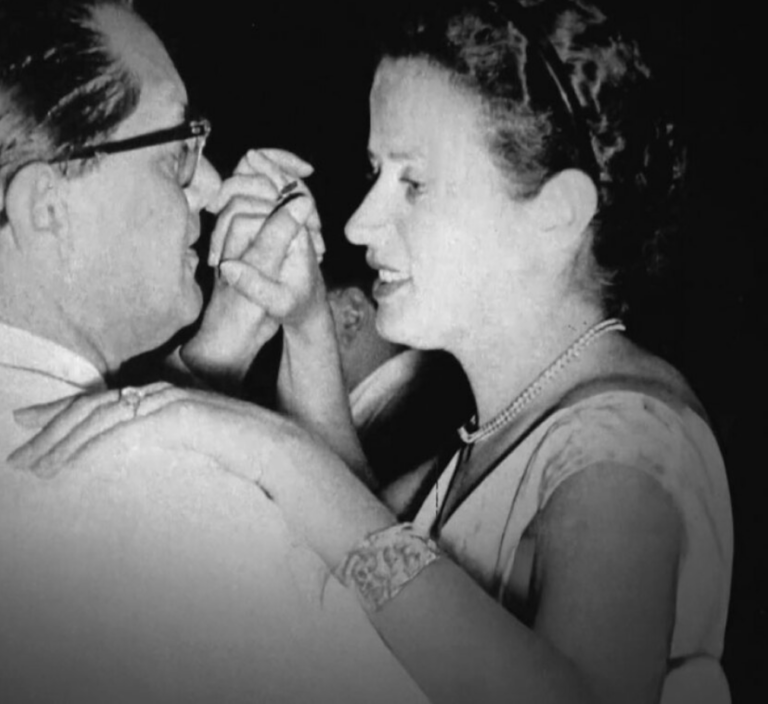In the early 1950s, Greek lawyer Konstantinos Methenitis went to London seeking shipowner clients to draft insurance contracts for their vessels. In the closed clubs of the City where the shipping community gathered, it was customary for women to sit on one side and men on the other to discuss their business matters.
However, sitting among the men was Methenitis’ young daughter, Athina, who worked at his office and listened to their conversations, learning about ship charters and sales. Athina had a dream that seemed crazy to others: she would tell everyone, even her friends, while watching ships pass by in Glyfada, where she lived, “We will have ships too,” drawing on her Kefalonian roots and love for the sea. Over half a century later, Athina Martinou passed away, leaving behind an empire of 300 ships, realizing everything she had envisioned.
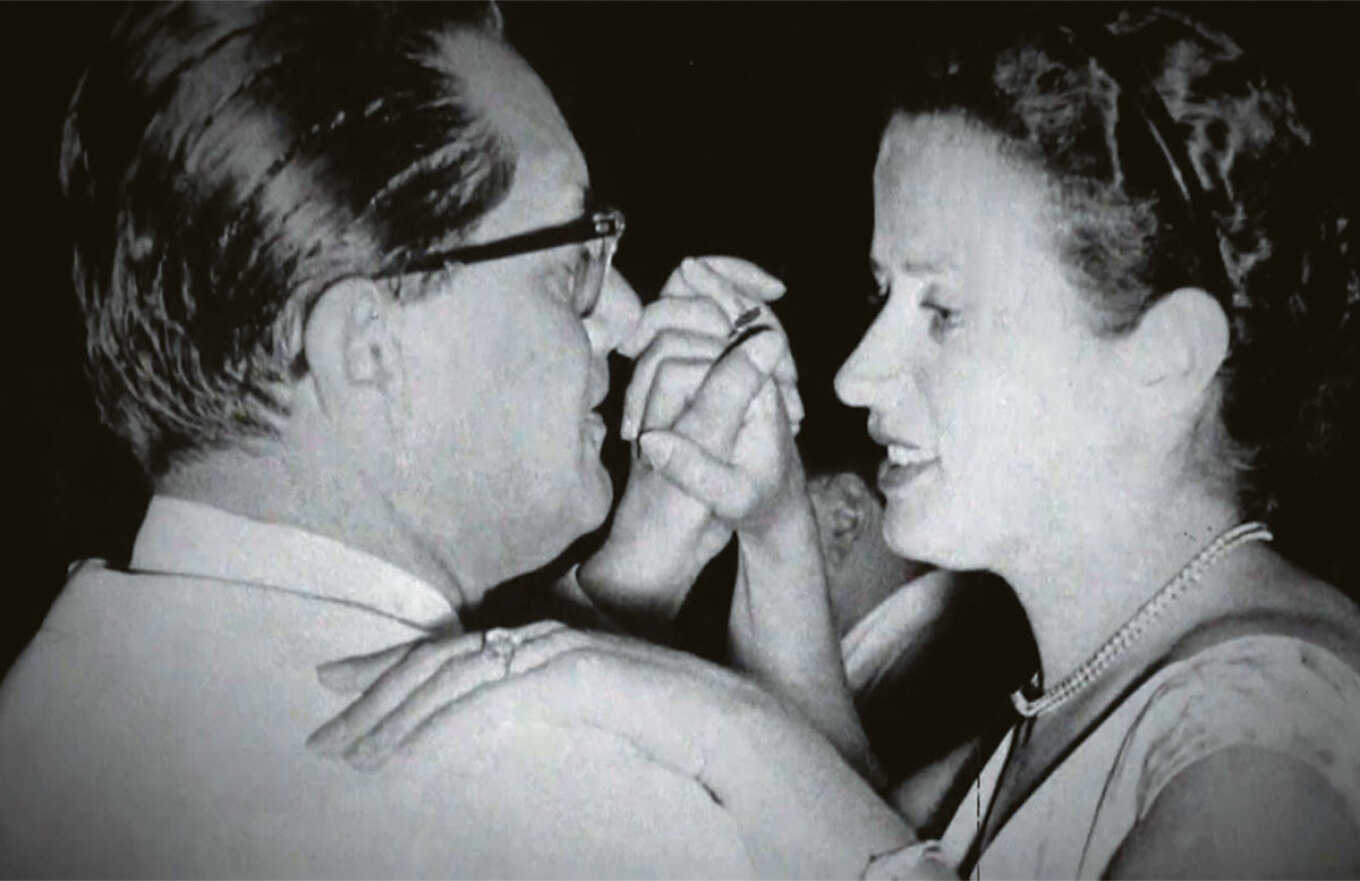
They would become shipowners
“They love me. When I die, there will be many people at my funeral,” Athina—known as “Nounou” to her close ones—would often say with a laugh, remarking on how shipping magnates, businessmen, and others would rush to pay their respects to her at every opportunity. And she was right: a large crowd gathered to bid her farewell. In Vouliagmeni, where her funeral was held, attendees included the President of the Republic, government representatives, significant figures from the shipping and business worlds, the Church, and those who knew the true Nounou.
Nounou Martinou achieved much more than just becoming a successful shipowner and an inspiration to the Greek shipping community. She built a vast fortune and cultivated powerful friendships, including with Queen Elizabeth. Most importantly, she left behind a family of national benefactors—children, grandchildren, and great-grandchildren—who continue the path she paved: a love for the sea and ships on one hand, and on the other, a simple life marked by quiet charity and service to society. Her family never drew attention with scandals or conflicts, and that remains her greatest achievement.
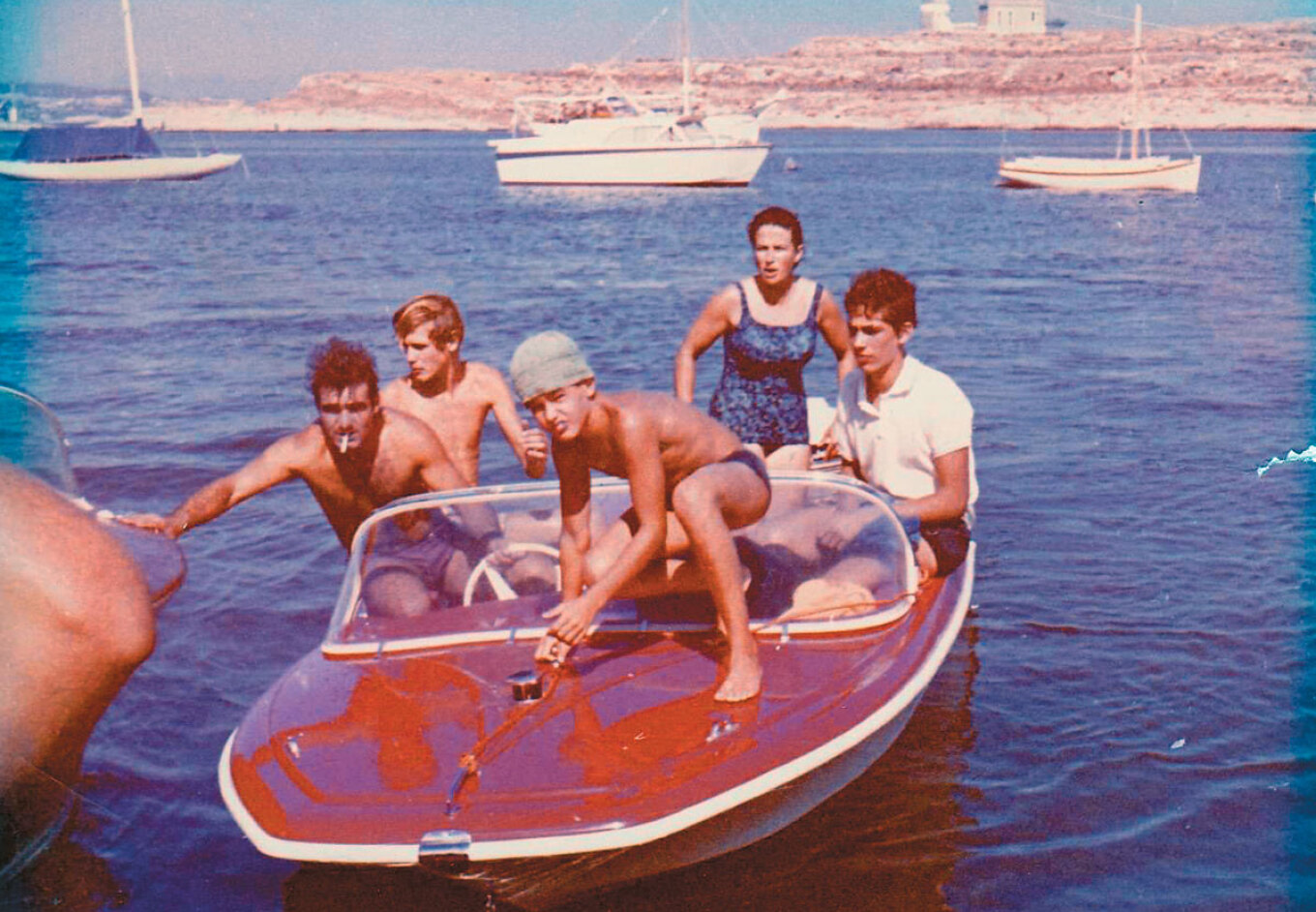
Nounou Martinou’s life was characterized by simplicity. Despite her professional successes, she led a peaceful and humble life. She once explained that she didn’t care for corporate titles or hierarchies, focusing instead on growing her fleet. And she succeeded, with more than 250 ships sailing the seas under the proud Greek flag. “We had an obsession with it, and we made it happen. The whole family got into the shipping business,” she said.
Nounou was always supported by her husband, Ioannis Martinou, and especially her son Thanasis, who from the age of 14 was involved in ship operations, making statistics and calculating crew requirements. “I wasn’t the driving force,” she once said, “but I was the person who could make difficult things easier. When you want something, you can make it happen. I never took on executive roles. I loved Thenamaris, not executive titles. What I wanted was for my ships to multiply, and they did.”
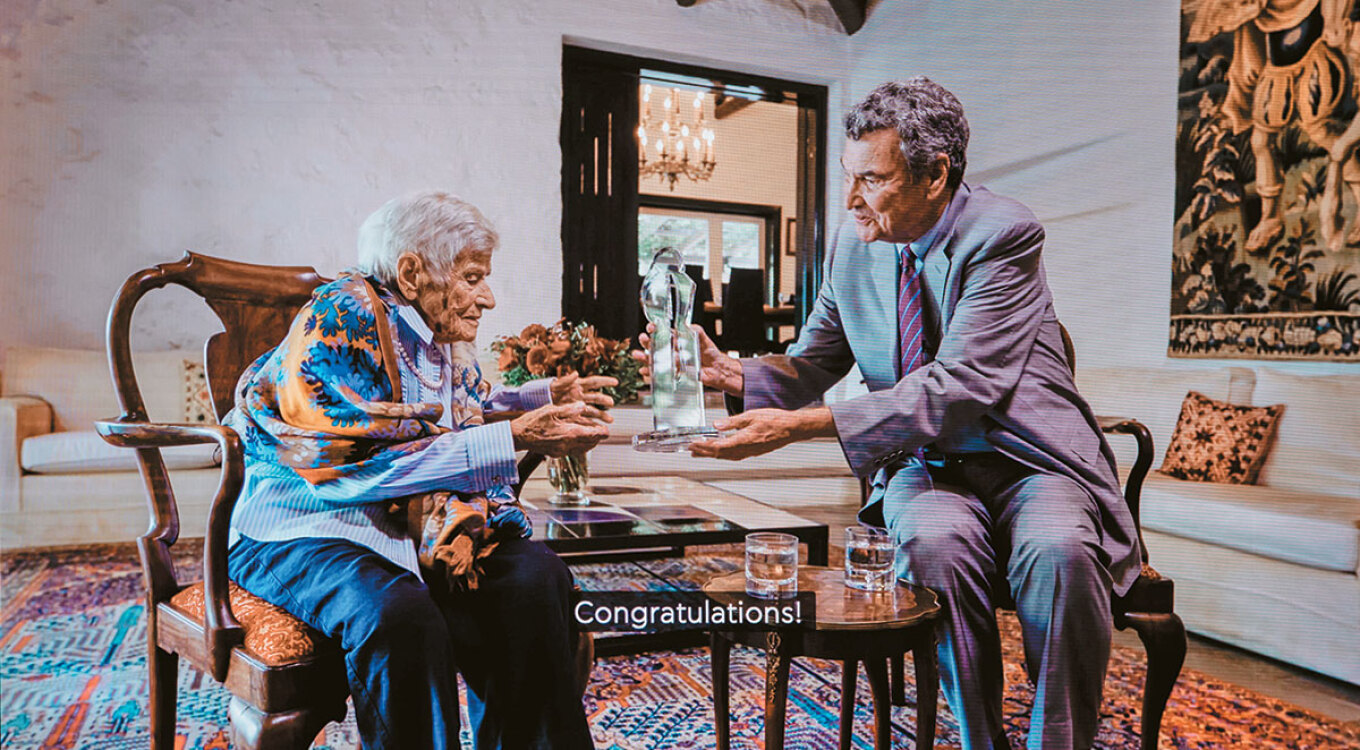
The Big Decisions
In the winter, she lived permanently in Anavyssos, and in the summers, she went to her estate in Schinoussa, where she enjoyed her hobbies. This was something she always took pride in and tried to pass on to her children and grandchildren. “I’m good at this,” she would say when, inevitably, the topic of fishing came up. When the weather permitted, she would board her old boat, docked in Schinoussa, and go out fishing with a longline. She continued doing this even after she turned 90! She also grew Aegina pistachios and had her own shooting range, as she was skilled in shooting, hunting, and fishing. Fluent in multiple languages and modern in her outlook, with a sharp mind and determination, she was communicative and had grit.
It was with this grit, determination, and above all, pure love, that she achieved her greatest accomplishment: the family she built with her husband, Giannis Martinou, which she kept united by making crucial and seemingly difficult decisions early on. Her three sons took different paths, but their excellent relationships were never disrupted, and this unity continued into the next generation with their grandchildren.
They remained united in their strong family bonds, disproving the malicious rumors that suggested they would have internal family disputes due to differing ambitions. And, of course, they continue their philanthropic work together, as all three sons are founding members of the Social Contribution Company “Syn-Enosis” and the Union of Greek Shipowners.
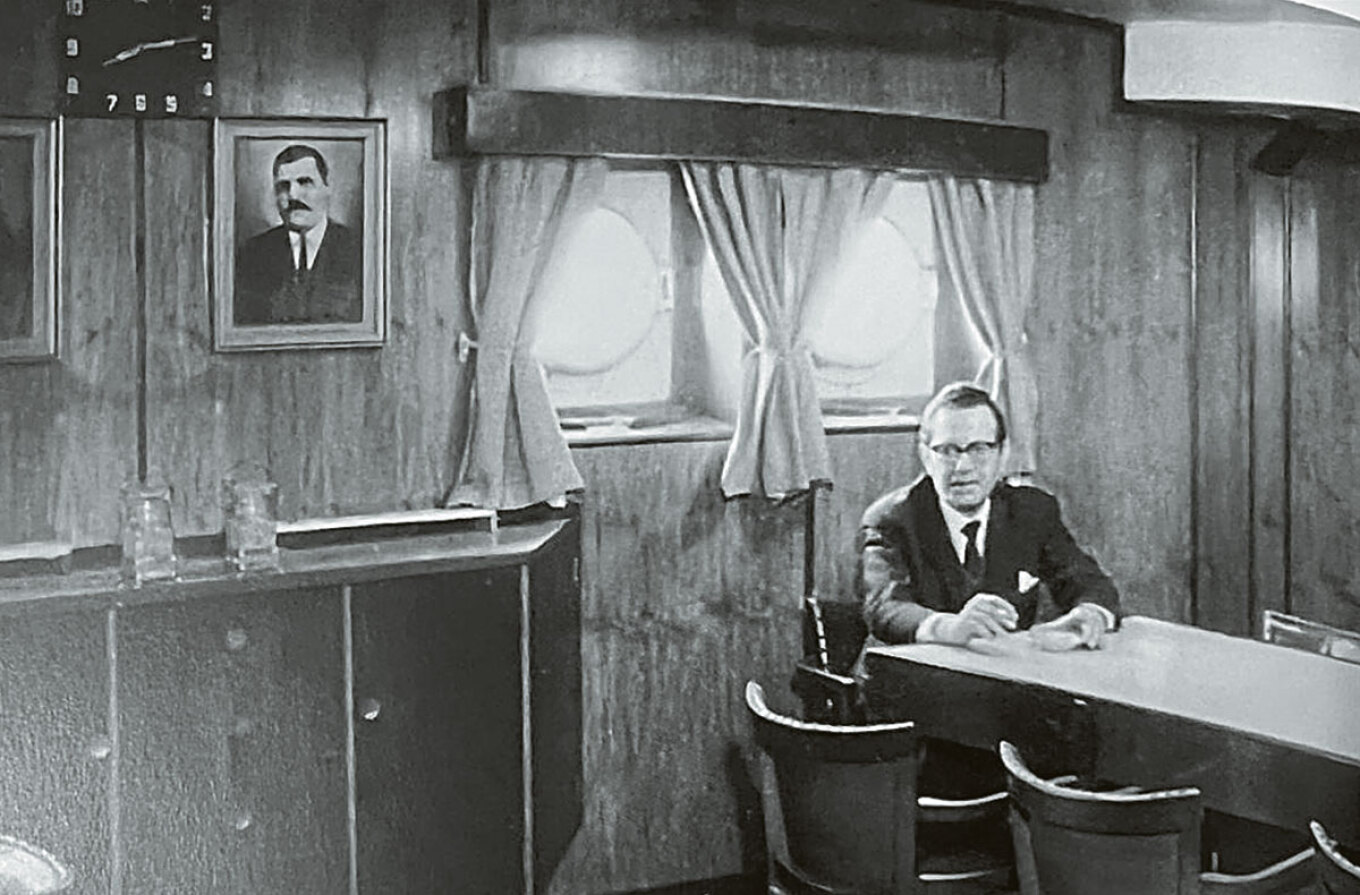
However, this love was not just for her family. It is well known that Nounou Martinou contributed to society through her foundation, “Athina I. Martinou.” She loved life, which she often said was “like the sea, feminine in nature,” and her approach to life was marked by dedication, respect, love, and passion, accepting all of its aspects—whether calm and serene or stormy and turbulent.
Always discreet and low-key but with a straightforward character, she never missed an opportunity to give back. Whether publicly or quietly, she participated in other charitable foundations, particularly those focused on children, using her financial resources to benefit the many and the vulnerable, without wanting public recognition.
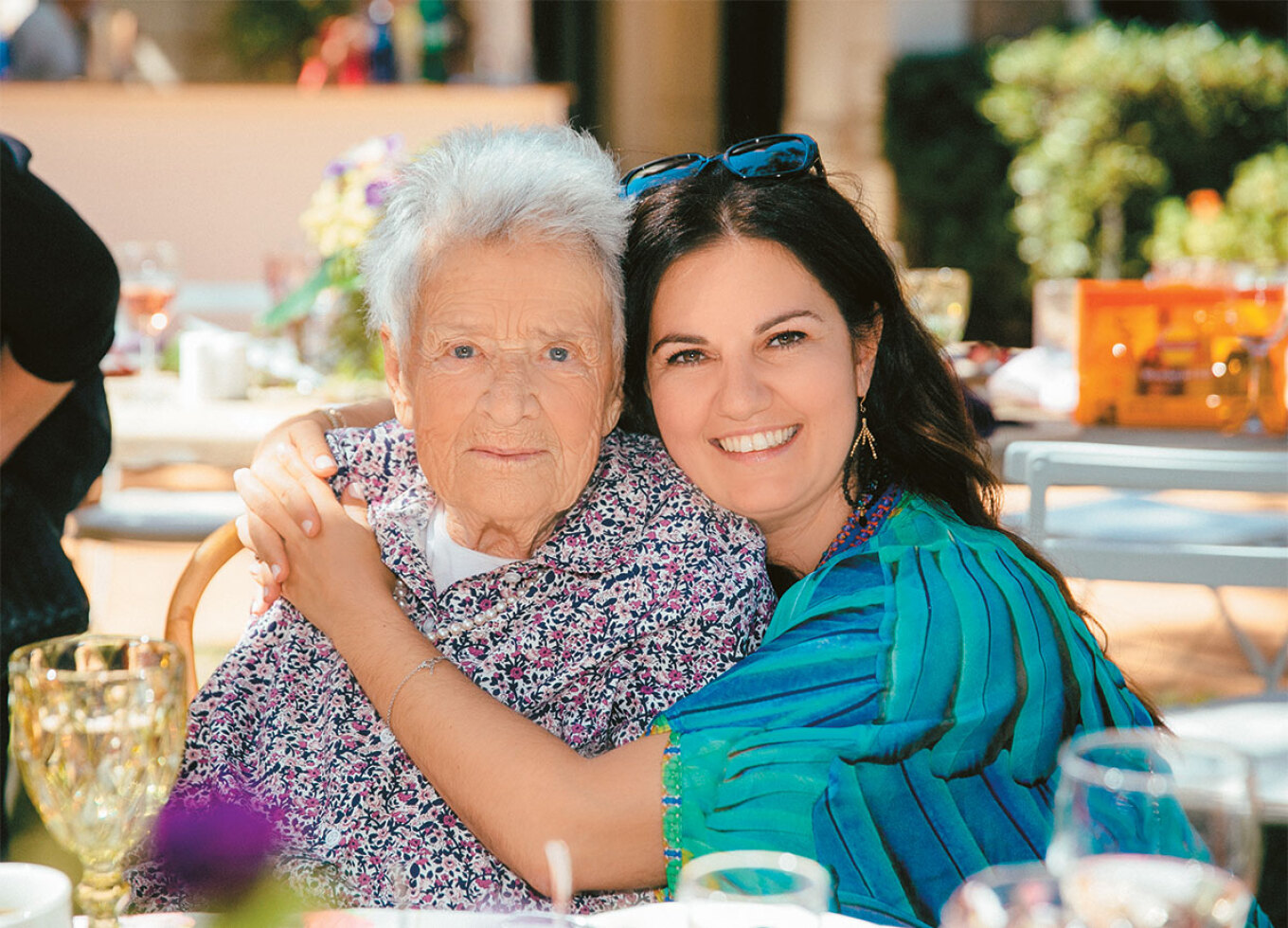
Her Grandfather, a Freedom Fighter of 1821
Nounou Martinou was of Eleusinian and Kefalonian descent. She was the daughter of Konstantinos Methenitis and Emma Kokkolaou. Her siblings were Meletis and Kleovoulos, known as “Bimpis” to the family.
Her father was a well-known lawyer in Athens. “I worked a lot at his office back then. I wrote all the legal briefs for the cases he would submit to court. And I was an excellent student at the College,” she recalled.
Even as a child, she had a fiery spirit—no surprise, considering her roots. Her grandfather, Kotsos Methenitis, fought in the 1821 Greek Revolution alongside the warlords Giannis Dyovouniotis and Nikolaos Kriezotis, playing a significant role in keeping the forces of Kioutachis away from Athens in 1826.
In the Beginning, the Antique Shop
Nounou married antique dealer Ioannis Martinou from Stemnitsa. “They complemented each other. Our father would stabilize things when they got out of control, and our mother helped him a lot with the business by opening doors to people from high society. Later, our father supported her in her new venture,” recalls Eleni Martinou, the only daughter of the family, who eventually took over the business.
Since 1926, the Martinos Antique Shop has been located in Monastiraki, at 50 Pandrosou Street. Ioannis Martinou had come to Athens to study law at the university. A cousin of his had opened the antique shop but died young, forcing Ioannis to take over the store, where he remained for the rest of his life. He was a man of genius and taste, which helped him stand out in the competitive market. He even supplied a significant part of the Benaki Museum’s collection.
This antique shop, which some called the “Aladdin’s Cave,” became the financial foundation for Athina Martinos when she decided to enter the shipping industry.
It was in 1964 when Athina dared to take her first step. The Martinos family is among those who invested their land-based profits into the sea. She sold her dowry, received additional capital from her husband, and bought her first ship.
Thanasis Martinos reminisces: “The ship cost 100,000 pounds. The ‘Thanasis,’ formerly ‘Mary Livanos,’ was a 10,000-ton steamship built in 1949. It belonged to Nikolaos Livanos’ company. Our uncle, Captain Priovolos Methenitis, who was highly regarded by Livanos as he had captained his ships, acted as an intermediary. He visited Livanos at his office in Monaco and sealed the deal. It was a ship with many problems and adventures from the start. It didn’t make money, but we didn’t lose either. We didn’t gain financially, but we gained knowledge.”
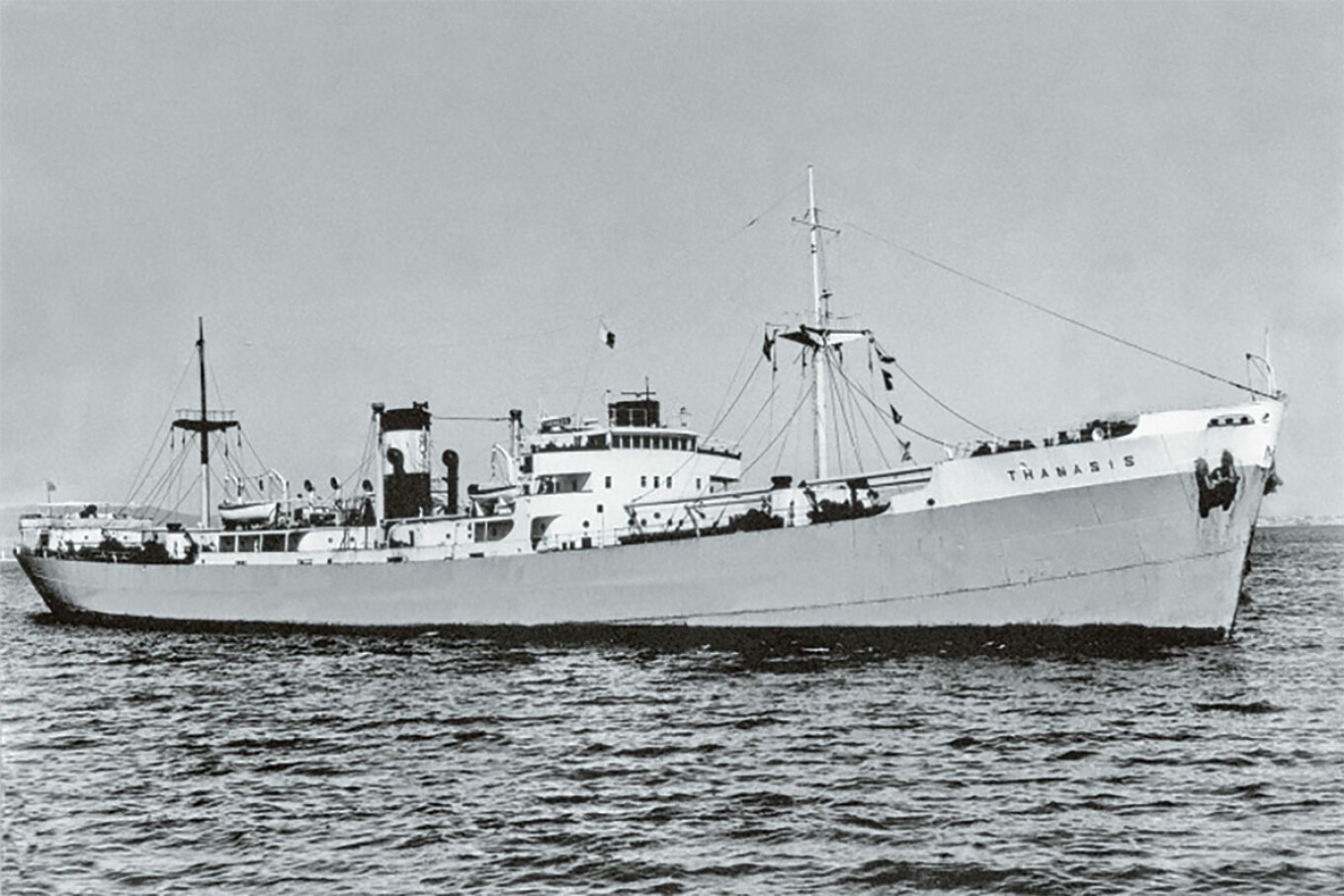
The First Ships
At the start of her business venture, Nounou Martinos had not only her husband by her side but also her eldest son, Thanasis, who was just 14 years old at the time! She gave him full credit, and Eleni Martinos described the situation: “My brother, Thanasis, while still in school, had business documents hidden under his notebooks. That’s why he wasn’t such a good student in his last year. He was already involved in the shipping company.”
Thanasis has recounted his school years, revealing that he even skipped classes to be closer to the sea and the ships: “I spent part of my time on shipping matters, mostly managing the ship’s finances and attending repair work. I had an interest in shipping as a hobby. I would even skip school to go to Perama and watch ship repairs. When I was 18 and went to London for my studies, shipping became my full-time job.” He studied Economics in London and also at the Economics department of the Law School in Athens.
Shortly afterward, the family bought a second ship, which Nounou Martinos liked to call a “vessel.” For this purpose, the couple traveled to Wales. At that time, 17-year-old Thanasis also traveled to China, even though he was studying for his university entrance exams. His goal was to charter the ship—to find cargo to transport. “A young man, yet he wasn’t afraid to take such a long trip, even to faraway China,” Nounou would say with admiration for her eldest son.
Thanasis Martinos also tells an interesting story about how the family bought their second ship: “At the time when my mother was to buy the second ship, she had a big argument with my father. They barely spoke for 10 days. That’s when we found a valuable English ship of 12,000 tons. My father came to me and said, ‘Thanasis, let’s buy this ship to make your mother happy.’ He was a calm man. He passed away early, in 1977.”
“We didn’t have much money. Thanasis was finishing high school. I found the funds, and we went to London for Thanasis to sign the contract. He told me, ‘We’ll raise the Greek flag.’ The port official in London asked me, ‘Do you know how to use a typewriter?’ I said yes, and I sat down and typed out the documents. Thanasis took them, and that’s how we took delivery of the ship. The first ship, the ‘Thanasis,’ which we bought in 1964 for 100,000 pounds, we sold three years later, in 1967, to the Paterson family for 300,000.”
The family’s first two ships were managed by the Methenitis family’s shipping business based in Piraeus and by Kronos Shipping, run by D. Lemos, based in London’s City.
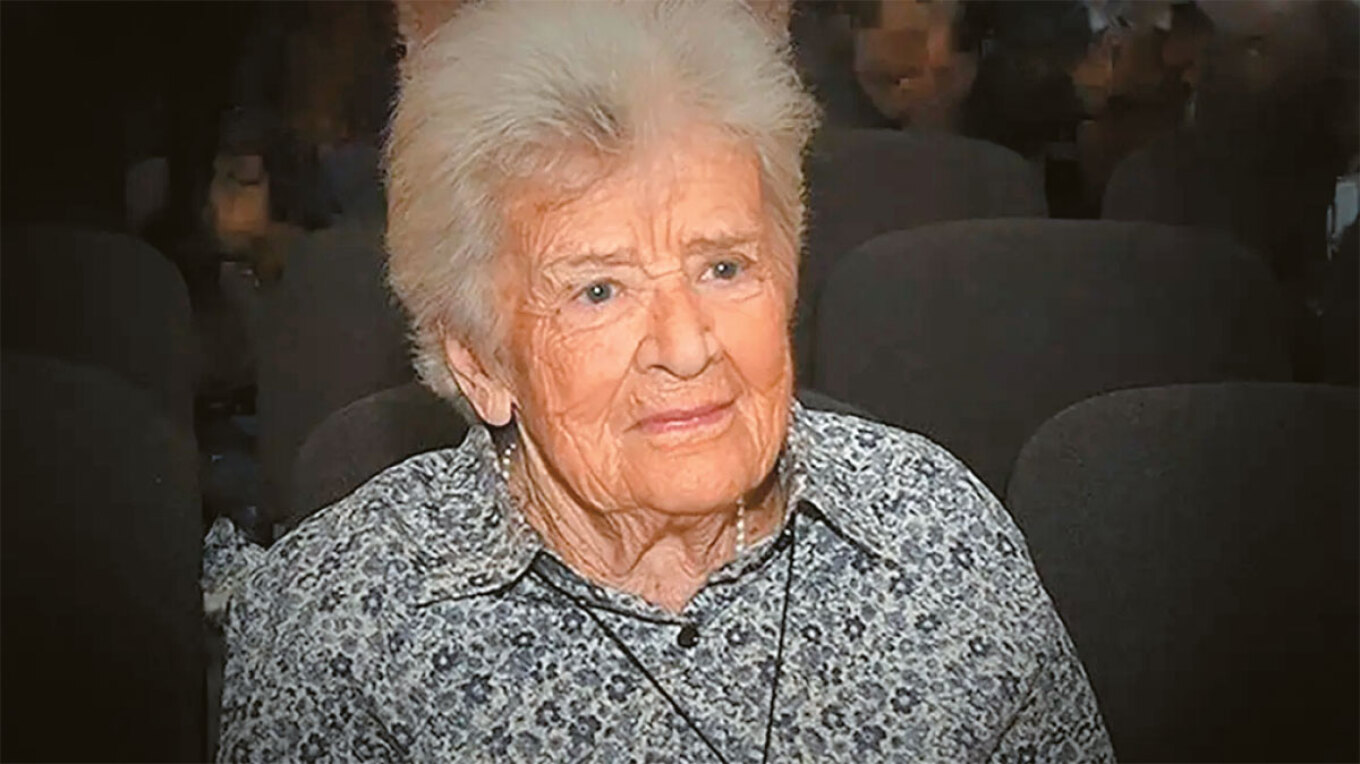
Thenamaris
In 1971, Athina Martinou decided to take a strong role in managing the family’s ships. She founded a company called Thenamaris Ships Management, named from the initials of her children’s names: Th(anasis)-e(leni)-n(tinos)-a(ndreas)…maris. She handed over all the shares to her sons, Thanasis, Dinos, and Andreas. Eleni, her daughter, kept her art gallery, while her two sons, Aris and Stefanos Koropoulis, successfully engaged in shipping through their company, Astra Shipmanagement.
“First of all, you need skill and intelligence, which our mother had. She was extremely likable to others, and it’s important for a businessperson to have good relationships,” comments Thanasis Martinou. He adds, “We owe her a lot of gratitude because, from the beginning, she gave us freedom to take initiative, unlike most other parents. She never retained ownership of the ships. The shares of the ships belonged to the three siblings. She didn’t keep any percentage, not even for her own security. She never wanted to be first. She gave us the leading role from the start and always supported our decisions, even in personal matters.”
Thanasis remained with the company until 1991. That year, he left and founded his own company, EastMed: “The division of ships occurred when I was 41 years old. I received 15 debt-free ships, just like the entire Thenamaris. We had many children, so it was a good decision to become independent. However, all three of us continued with a conservative approach, making careful expansions.”
A few years later, in 1997, his younger brother Andreas, the family’s youngest, followed suit by founding Minerva (Athina), named after their mother. The second son, Dinos, remained with Thenamaris.
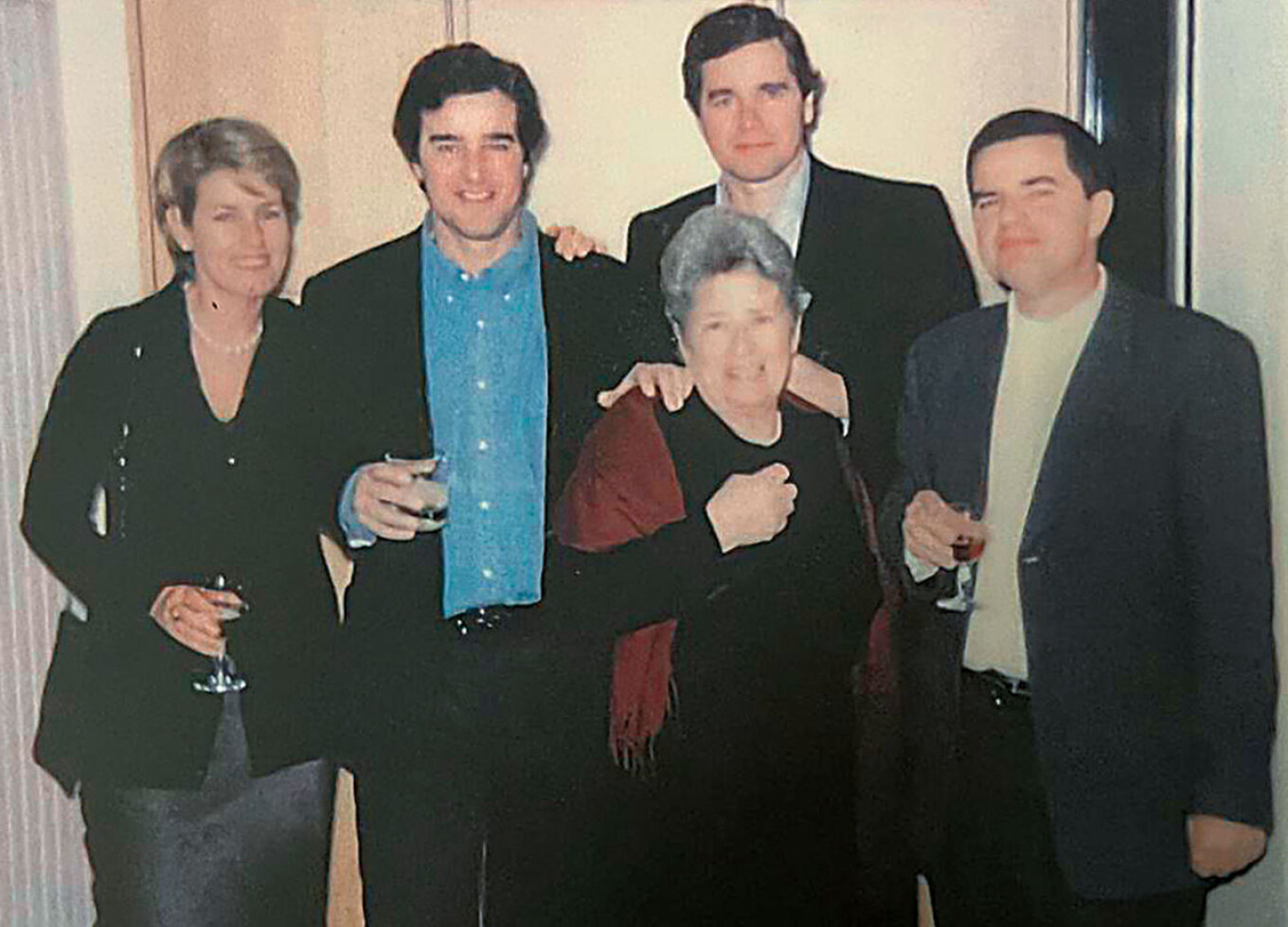
The Successors
“Today, there is a succession plan in all three companies. My nephews, my brothers’ children, are around 40 years old and are capable. My nephews from my sister are also involved in shipping and ship ownership,” says Thanasis Martinou. Combined, the three companies now operate almost 300 ships of various types and continue their shipbuilding programs.
Thenamaris’ fleet has always been diversified, consisting of specialized ships (car carriers – heavy lift) as well as liquid and dry cargo ships. This strategy of spreading business risk contributed to the company’s success, even though its focus has been primarily on the spot market with voyage charters. In its early years, the company built three handysize bulk carriers (up to 50,000 tons). However, the Martinou family later focused their growth on the purchase of second-hand ships.
Thenamaris is regarded as one of the companies that successfully exploited the strategy of short-term ship trading to generate capital gains. From the mid-1990s, the Martinou brothers returned to shipbuilding while maintaining strong involvement in the second-hand ship market.
The 40 Shipowners
One characteristic attributed to Thenamaris’ success is its work environment, which fostered entrepreneurship and initiative among its staff. Employees were given the opportunity to participate with a small share in the ships they managed, contributing to the company’s success. This is evident in the fact that “from the ranks of its executives, 40 important Greek shipowners emerged,” as Nounou Martinou proudly stated.
Her popularity is revealed in a memorable event that filled her with pride. She recounted it herself on the show “Aeinavtes” about six years ago: “I have a little boat that’s 50 years old, and I dock it in Schinoussa, where I go fishing. On the morning of my birthday, at the beginning of August, I got up to collect my fishing lines. And I thought: Wow, today is my birthday! As soon as I stepped on the deck, I saw an amazing sight: 100 yachts were decorated with flags in Schinoussa to honor me on my birthday. It was a unique recognition. It makes me proud.”
Ask me anything
Explore related questions
